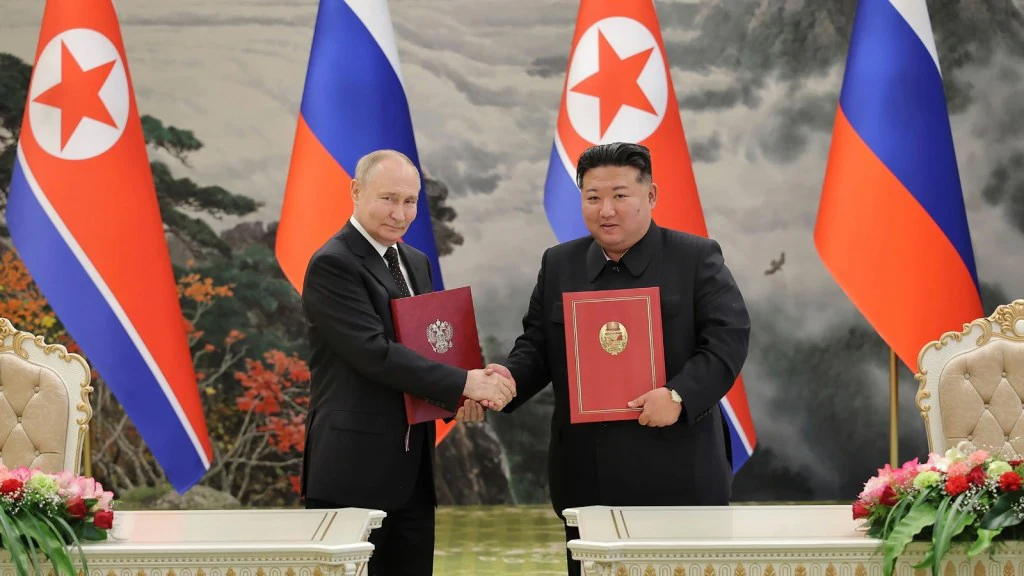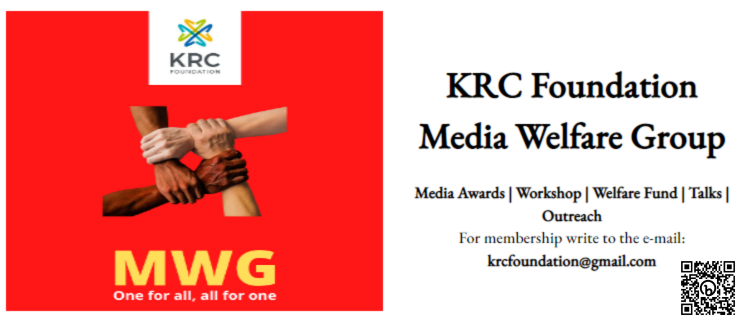The new agreement with Pyongyang marked the strongest link between Moscow and Pyongyang since the end of the Cold War
 KRC TIMES Desk
KRC TIMES Desk

MOSCOW : Behind the smiles, the balloons and the red-carpet pageantry of President Vladimir Putin’s visit to North Korea last week, a strong signal came through: In the spiraling confrontation with the U.S. and its allies over Ukraine, the Russian leader is willing to challenge Western interests like never before.
The pact that he signed with North Korean leader Kim Jong Un envisions mutual military assistance between Moscow and Pyongyang if either is attacked. Putin also announced for the first time that Russia could provide weapons to the isolated country, a move that could destabilize the Korean Peninsula and reverberate far beyond.
He described the potential arms shipments as a response to NATO allies providing Ukraine with longer-range weapons to attack Russia. He bluntly declared that Moscow has nothing to lose and is prepared to go “to the end” to achieve its goals in Ukraine.
Putin’s moves added to concerns in Washington and Seoul about what they see as an alliance in which North Korea provides Moscow with badly needed munitions for its war in Ukraine in exchange for economic assistance and technology transfers that would enhance the threat posed by Kim’s nuclear weapons and missile program.
The new agreement with Pyongyang marked the strongest link between Moscow and Pyongyang since the end of the Cold War.
Kim said it raised bilateral relations to the level of an alliance, while Putin was more cautious, noting the pledge of mutual military assistance mirrored a 1961 treaty between the Soviet Union and North Korea. That agreement was discarded after the Soviet collapse and replaced with a weaker onel in 2000 when Putin first visited Pyongyang.

Stephen Sestanovich, senior fellow at the Council on Foreign Relations noted that when Soviet leader Nikita Khrushchev signed the deal with Pyongyang in 1961, he also tested the world’s biggest nuclear bomb, built the Berlin Wall and probably started thinking about moves that led to the Cuban missile crisis in 1962.
“The question for Western policymakers now is whether Putin is becoming comparably reckless,” Sestanovich said in a commentary. “His language in North Korea — where he denounced the United States as a ‘worldwide neocolonialist dictatorship’ — might make you think so.”
South Korea responded by declaring it would consider sending arms to Ukraine in a major policy change for Seoul, which so far only has sent humanitarian assistance to Kyiv under a longstanding policy of not supplying weapons to countries engaged in conflict.
Putin insisted Seoul has nothing to worry about, since the new pact only envisions military assistance in case of aggression and should act as a deterrent to prevent a conflict. He strongly warned South Korea against providing lethal weapons to Ukraine, saying it would be a “very big mistake.”
“If that happens, then we will also make corresponding decisions that will hardly please the current leadership of South Korea,” he said. Asked whether North Korean troops could fight alongside Russian forces in Ukraine under the pact, Putin said there was no need for that.
Last month, Putin warned that Russia could provide long-range weapons to others to hit Western targets in response to NATO allies allowing Ukraine to use its allies’ arms to make limited attacks inside Russian territory.
He followed up on that warning Thursday with an explicit threat to provide weapons to North Korea. “I wouldn’t exclude that in view of our agreements with the Democratic People’s Republic of Korea,” Putin said, adding that Moscow could mirror the arguments by NATO allies that it’s up to Ukraine to decide how to use Western weapons.

“We can similarly say that we supply something to somebody but have no control over what happens afterward,” Putin said. “Let them think about it.”
Sue Mi Terry, senior fellow for Korea studies at the Council on Foreign Relations, warned that Moscow could share weapons technologies with Pyongyang to help improve its ballistic missile capabilities, noting there is evidence of this happening already, with Russia possibly providing help to North Korea with its successful satellite launch in November, two months after Kim last met Putin.


